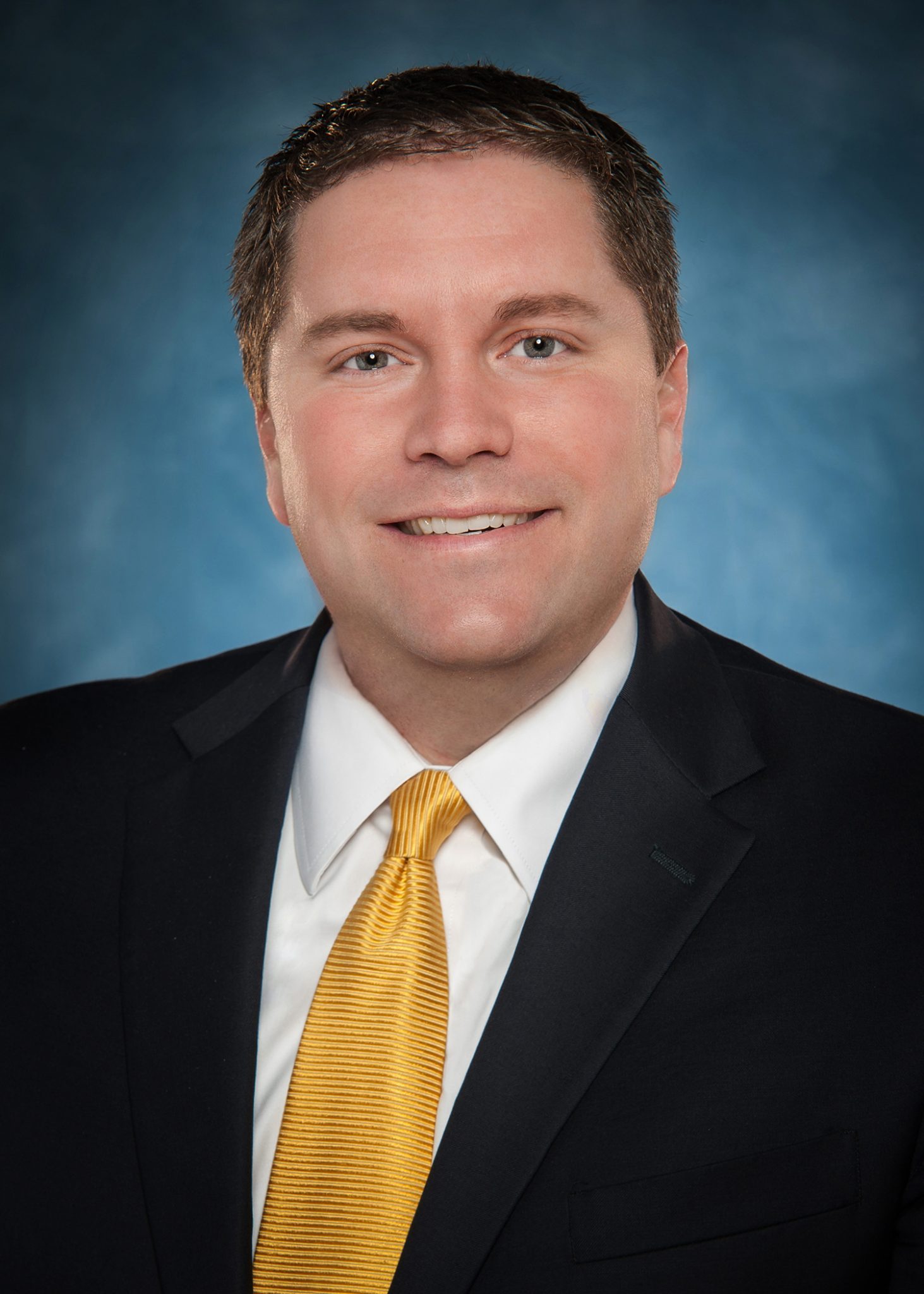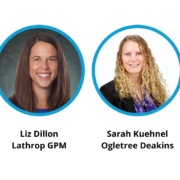Spotlight on Flex – Alan Bryan
The Spotlight on Flex showcases professionals from member organizations who exemplify personal and professional success while working a flexible schedule. Their stories illustrate the long-term benefits that flexible schedules offer to both individuals and organizations.
This month, we are pleased to share insights from Alan Bryan, Senior Associate General Counsel for Legal Operations & Outside Counsel Management, Walmart Stores (Bentonville, AR).
 Diversity & Flexibility Alliance: How have you made flexibility a priority and a success through your career? How has Walmart supported this?
Diversity & Flexibility Alliance: How have you made flexibility a priority and a success through your career? How has Walmart supported this?
Alan Bryan: I started at what was then Arkansas’s largest law firm as a general litigator where I was eventually made partner. I got engaged about eight years into my career and explored transferring to my firm’s Fayetteville’s office since my fiancée (now wife) was originally from there. I eventually relocated, and that move also caused me to reflect on where I was going in my career.
Even when I made partner, I realized my next chance for leadership at the firm (chairing a committee or being a section leader) was a long way off. I knew what I really wanted was to lead and influence people, and I had to think about what my long term options were. The firm, among other things, did not offer leadership opportunities for junior partners. Even in law school, I had always been interested in working in-house, and Fayetteville is roughly 25 miles south of Bentonville (where Walmart is headquartered). An opportunity presented itself, and I started working at Walmart managing litigation in July 2011. In May 2013, I was asked to lead all of the company’s outside law firms. Since then, I’ve also taken on the role of managing several of the legal department’s initiatives for its Legal Operations group.
In terms of flexibility, many organizations have what’s stated, but that doesn’t always correlate to the reality of what’s expected – time is finite, and time is money. That was certainly the case at my law firm – what was said wasn’t always what happened. I knew Walmart fully supported flexibility and the idea that you can manage how and where you work at the same time. You have to find a place where you can secure what you want and get to where you want to be on your own terms.
My wife is a neo-natal intensive care nurse and primarily works the night shift. We had our first child within the first year I started at Walmart and our second child a year and a half later. The company understands I’m the only available caregiver in the mornings, and sometimes I have to shift when I arrive into the office to accommodate my kids’ schedules.
DFA: How has working flexibly made your career more sustainable and contributed to your overall internal and external development?
AB: I “formally” flex one day a week, but there is no formality as to which day; the nature and duties of my personal and professional roles fluctuate on a weekly basis. Some of that has to do with my wife having a fluctuating schedule. I’ve spent the majority of my six years here with two infants/toddlers and a wife who works the night shift with no set days – there’s no question that flexibility, and Walmart’s flexible work schedule, has made my career more sustainable.
We’re a two income family, and my schedule is heavily dictated by my wife’s availability. I try to plan my flex day around her work, and without flex, I wouldn’t be able to be as involved with our family life.
I didn’t negotiate for flexibility when I first started at Walmart because it wasn’t top of mind. However, within six weeks of starting here, we found out we were expecting our first child. So even though flex wasn’t part of my hiring negotiation, it quickly became a formal conversation with leadership. When I made “the ask,” Walmart was fully on board and ready to make flexibility part of my regular schedule and a success for both of us.
No matter your organization, you have to develop internally as well as externally. I had to establish trust with my team and leadership; I had to show I could get results and do what was needed no matter where I was working. By creating this trust, it made my request to work one day a week from home and shift my hours as necessary so much easier. I showed I was responsible, accessible, and could make this schedule a success for everyone.
One of the misconceptions about flex is people think you won’t be accessible. If you say your working hours are 9-5 or 12-8, then those are your working hours no matter where you are. A cell phone or email is always on and near you. That’s the advantage of technology; it allows for seamless, flexible work-life today. Productivity doesn’t vanish all of sudden just because you left the physical confines of your office.
Flex has also allowed me to be a better person, husband, and father, but it also contributes to my overall happiness. You can’t develop, internally or externally, with a negative attitude and expect to reach the leadership level. Flex allows me to be present, even when I’m not physically present, without sacrificing my accessibility. We have the technology to support this, and I don’t have to make the hard choice between being with my family or participating in a critical work meeting – I can do both.
I think my situation is just one of the many reasons to make flex part of the business case. It’s a talent retention and overall employee happiness tool. Happy employees are productive employees. Even something as simple as cutting out commute time is huge. I live almost 30 miles away from Bentonville, and every time I go into the office, I have to factor about an hour of traffic each way. Multiply that time for five days a week, and that’s 10 hours of the “work” week lost in a car; the best I can do during this time is a conference call over my hands-free system. When I flex, I gain that time back and actually work longer hours. The difference is by recapturing those saved hours, it takes the pressure off of other time commitments, and I’m happier and more productive.
DFA: Looking back, what would you tell your first year associate self?
AB: I would tell myself to get more involved. When I first started practicing, my gut instinct was to put my head down and work as hard as I could. What I neglected was critical relationship building opportunities and participating in events that could have furthered my development – all for the sake of working really hard. Like everything else, networking takes time. But you have to put the pen down, step away from the computer, and get out there! It will pay a much bigger dividend down that road. I put so much effort into my billable work that I neglected developing outside of the office as well. You have to nurture other parts of your mind and body. I ultimately got to where I was going, but I was not as well-rounded as I could have been had I taken more time to do more personal and professional development sooner.
This is also the lesson of a rigid versus flexible work schedule. When an employer is too rigid and forces that “head-down mentality”, it’s bad for both the employee and the organization. For the employee, it leads to less happiness inside and outside the office and not holistically developing themselves. For an employer, it can mean greater attrition or less productivity for unhappy employees. It’s as important to develop yourself away from your desk as it is to develop at it.
DFA: How do you pay it forward?
AB: I’m blessed to have the opportunity to realize “what I wish I had known” and to realize what we need to be doing in the profession around diversity, inclusion, flexibility, development, and social justice. We need to be leading as lawyers and should be the example for other professions. Sometimes we’re far behind. I’ve tried to pay it forward by speaking out in a pragmatic and diplomatic way to advance these issues and advise upcoming generations on things I wish I had known when I was their age.
I try to lead and influence others, in groups or individually, by being a servant leader. I put everything I have into whether I’m speaking to a crowd of hundreds or having a one-on-one conversation. That’s a critical component of our culture at Walmart. I want to help others achieve their goals and get to where they want to be. Maybe it’s listening with an empathetic ear, or maybe it’s helping someone on a project. No matter what it is, we can all be leaders in so many different ways with how we act and treat one another.
If you are a professional working a flexible schedule and would like to share your story in an upcoming Spotlight on Flex, contact Eliza Musallam.






